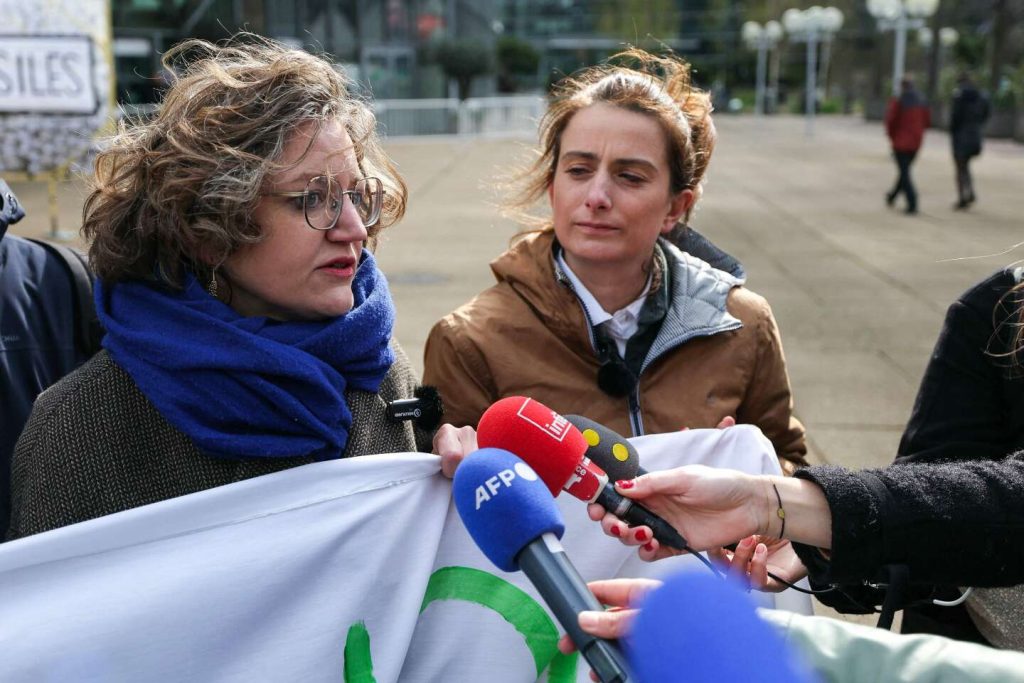Marie Toussaint and Marine Tondelier stood in front of the TotalEnergies tower in La Défense, Courbevoie, on March 28, 2024, to demand an end to the use of fossil fuels in Europe. The Green Party’s campaign team set up speakers playing loud music as dancers performed a choreographed routine symbolizing the destruction caused by the oil group. Four months after launching their campaign for the European elections with a dance performance, the Greens are once again using art to illustrate their political agenda, risking criticism for being out of touch. The campaign focuses on creating a European sovereign fund to acquire majority stakes in major oil and gas companies on the continent, forcing them to align with greenhouse gas emissions reduction goals outlined in the 2015 Paris Agreement.
Marie Toussaint argues that recent interpretations of European law allow for action in defense of the climate. The 100 billion euro project is spearheaded by Marine Tondelier, who pre-empts criticism of its idealistic nature by stating that in ten years, such a measure will seem normal to everyone. With polls not currently in their favor, the Green Party faces the challenge of balancing environmental advocacy with a broader appeal to voters. This comes at a time when environmental issues are no longer a consensus topic, but can be politically divisive, and even used as propaganda by far-right groups in Europe. Toussaint notes that they are the only ones willing to confront attacks from the majority, which they believe has led to significant setbacks in the fight against climate change.
The party sees this as a coalition of denial, where progress in addressing climate change is met with resistance. This is exemplified by Noël Mamère, a prominent figure of the party who garnered 5.25% of the vote in the 2002 presidential election, reflecting on the challenges facing the Green Party. Despite the obstacles, Toussaint remains committed to their cause, emphasizing the importance of standing firm in the face of opposition, even if it means going against the tide. The Green Party aims to distinguish themselves as the only party dedicated to addressing environmental issues head-on, even if it means taking a more confrontational approach in the political landscape.
The campaign’s focus on nationalizing major oil and gas companies in Europe represents a bold and unconventional approach to tackling climate change, with the goal of shifting the energy industry towards more sustainable practices. By leveraging the power of the European development bank, the Green Party hopes to significantly impact the reduction of greenhouse gas emissions on a continental scale. Despite facing skepticism and criticism, Toussaint and Tondelier remain steadfast in their commitment to fighting for a greener future, highlighting the urgency of taking decisive action now to combat the global climate crisis.
As the European elections draw near, the Green Party continues to grapple with the challenge of broadening their appeal while staying true to their environmental agenda. The party’s innovative and ambitious proposals, such as the creation of a European sovereign fund, demonstrate their commitment to leading the charge against climate change. By pushing the envelope and daring to confront powerful industries, the Greens aim to position themselves as the vanguard of environmental advocacy in Europe. Despite the obstacles they face, the Green Party remains resolute in their mission to create a more sustainable and equitable future for all.


